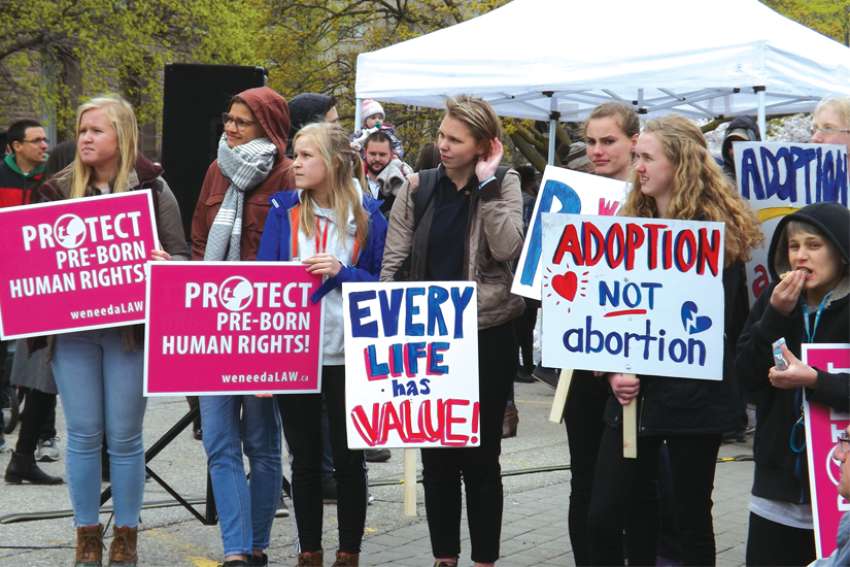Those numbers are quite startling to Dr. Moira McQueen, director of the Canadian Catholic Bioethics Institute.
“The people who say they are completely pro-choice — 52 per cent according to the headline — have a view that an abortion should be available at any time during a pregnancy. That is actually pretty startling in its clarity,” said McQueen.
Dave Korzinski, a research director for the Angus Reid Institute, said this randomized survey of 1,805 adults was executed to uncover if there were shades of grey about this complex issue that are not always captured in the public square.
“Building on that, we asked the question about how important your faith is to you,” he said. “For those who feel most strongly faithful, there are a lot of people there who are in the middle on this issue. Forty per cent (of those who say faith is important to them) say they are completely pro-life, but almost equally likely at 39 per cent are people who say they understand the need for the procedure at certain points of pregnancy.”
Of the 1,805 total participants, 199 answered “strongly agree” to the statement “my faith is important to me” and 383 “agree.”
With 21 per cent of the people who strongly agree faith is important to them labelling themselves as completely pro-choice, for Catholics in particular, this viewpoint contradicts the tenets of the faith, said McQueen.
“Just about every Catholic knows that the Church is against abortion and euthanasia. But there is still this large group of Catholics that must be indifferent to the teaching or absolutely disagree with the teaching. Or they don’t really understand the importance of the dignity of the human being from conception.”
McQueen offered some reasons behind the disconnect.
“The way we view human life at that level is very technical, clinical or, worst of all, utilitarian,” said McQueen. “We think we can do something to that life to benefit ourselves for research and experimentation — and a lot of people think that is perfectly valid because it can help with medical research.”
Of the 199 people who say faith is very important to them, 56 per cent believe the “viable fetus has equal rights to the woman who is pregnant.” Twenty-three per cent say “the viable fetus does not have equal rights, only the woman who is pregnant has rights.” About 22 per cent are not sure.
The percentages fluctuate significantly when the 383 people whose faith is important to them were asked this question. Just 31 per cent say the fetus and woman is equal, 42 per cent affirm only the woman has rights and 27 per cent are unsure.
Angus Reid also examined how Canadians view abortion through a political lens in the wake of the Roe v. Wade overturn in the United States in the summer. The data indicated 57 per cent of polled Canadians want more legislation introduced to improve access to abortion, 34 per cent are satisfied with the status quo and nine per cent want policies that restrict abortion access.
There is essentially a 50/50 split between people who believe it is acceptable or unacceptable for the Liberal and NDP parties to ban pro-life candidates from running for office. The percentages are also close when considering if the government should revoke charitable status for pro-life organizations. About 38 per cent approve, 35 disapprove and 26 are undecided.
Scott Hayward, co-founder of RightNow, an advocacy organization that champions pro-life political candidates, said these near-even splits are both encouraging and troubling.
“I suppose it is encouraging that half of the Canadian population is with us pro-lifers on basic policy questions and the ability for us to advocate for pre-born children in the body politic and legislatures across the country; the troubling thing would be that, according to this poll, half of the country is opposed to us participating in elected politics,” said Hayward.
“Regardless, RightNow will continue to elect pro-life politicians to build toward pro-life majorities in our legislatures so that pro-life legislation is passed to reduce the abortion and assisted suicide rates.”
The data can be found at angusreid.org.


